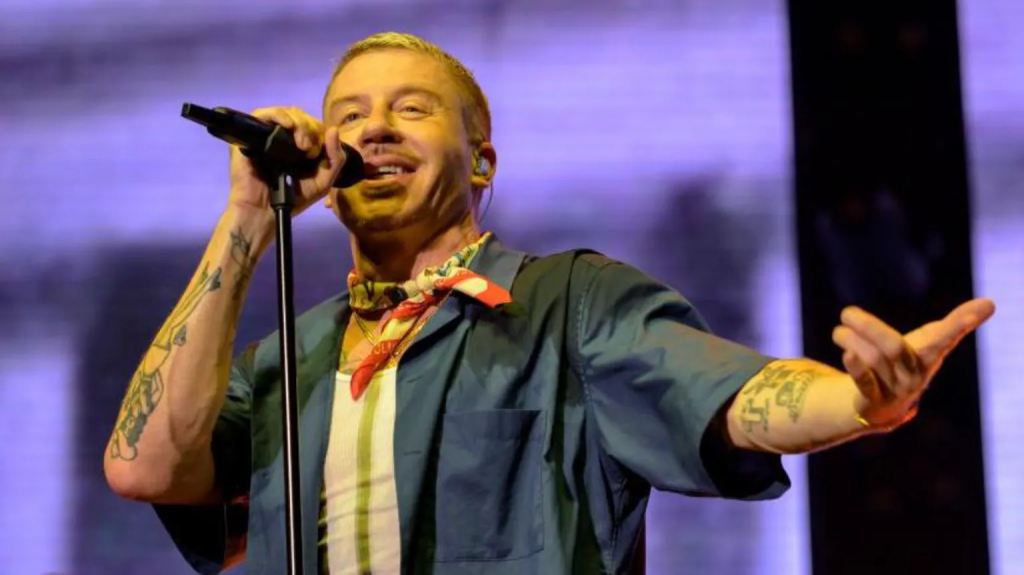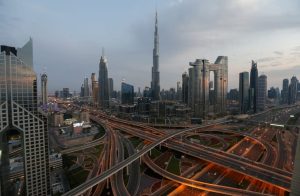Will more stars boycott Dubai after rapper Macklemore?
4 min read
Activists and charities hope Macklemore's decision will raise awareness of the conflict.

Activists and charities hope Macklemore's decision will raise awareness of the conflict.
When rapper Macklemore announced the cancellation of his upcoming Dubai concert, many fans initially speculated that it was a statement in solidarity with Gaza. However, the reason for his cancellation was far different: he chose to forgo the performance due to the ongoing humanitarian crisis in Sudan. This conflict, which has already claimed tens of thousands of lives, left millions facing hunger, and sparked a severe humanitarian emergency, has received significantly less global attention compared to crises like those in Ukraine or Gaza.
Dubai, the largest city in the United Arab Emirates (UAE), has been linked to the conflict in Sudan, primarily through allegations that it has funded the Rapid Support Forces (RSF), one of the factions in the war. Macklemore, who gained fame with his 2012 hit “Thrift Shop,” took to Instagram to explain his decision. “The crisis in Sudan is catastrophic,” he wrote, noting that some estimates suggest up to 2.5 million people might die from starvation and disease by October.
Macklemore’s post highlighted his internal conflict about accepting money from a venue tied to a conflict he finds morally troubling. “If I take the money,” he said, “while knowing it doesn’t sit right with my spirit, how am I any different from the politicians I’ve been actively protesting against?” His stance has drawn significant attention to the Sudanese conflict, potentially inspiring other artists to make similar stands.
The RSF, engaged in a brutal struggle with the Sudanese army, has faced severe accusations including sexual violence, looting, and ethnic cleansing in the regions under its control. Reports from Human Rights Watch suggest that the RSF may have committed acts of genocide against non-Arabs, a claim the group denies. The RSF’s origins trace back to the Janjaweed militia, which was previously implicated in genocide in Darfur two decades ago, with an estimated 300,000 deaths.
Evidence connecting the UAE to the RSF has been mounting. Reports have surfaced indicating that the RSF has used drones similar to those supplied by the UAE to its allies in other conflicts, such as in Yemen and Ethiopia. Additionally, there have been allegations of UAE civilian aircraft transporting weapons to the RSF. It is suspected that the UAE is seeking to secure economic interests in the Red Sea region, capitalizing on Sudan’s natural resources. The RSF controls some of Sudan’s most valuable gold mines, and a Swiss aid organization claims that the UAE is importing billions of dollars’ worth of gold smuggled from Africa.

In response to these allegations, the UAE has labeled them as “baseless and unfounded” and asserted that they are attempts to divert attention from the ongoing conflict and humanitarian crisis. The UAE government has called for an immediate ceasefire and urges the conflicting parties to seek a peaceful resolution through dialogue.
Macklemore stated that he had been approached by several organizations regarding the Sudan crisis for months before making his decision. A representative from Madaniya, an organization for Sudanese expatriates in the UK, expressed hope that Macklemore’s boycott would not only draw attention to Sudan but also encourage more scrutiny of the UAE’s role in the conflict.
Upcoming performances by other artists, such as Calvin Harris and Sophie Ellis-Bextor in Dubai, remain uncertain. Neither has responded to requests for comment on whether they might follow Macklemore’s example.
Could a cultural and sporting boycott influence the regional powers implicated in the Sudanese conflict? Professor Alex de Waal, an expert on Sudan, suggests that such boycotts could indeed be impactful, given that the UAE and Saudi Arabia are competing for influence in Africa and support opposing sides in Sudan. However, he notes that these countries are economically powerful, and sanctioning them might be challenging. The priority for many Western nations remains focused on other global conflicts, such as the Israel-Gaza war.
Professor de Waal believes that the influence of cultural and sports figures might be more effective than traditional hard power measures like sanctions. “Cultural figures and sports figures saying ‘we’re not going there’ counts for much, much more than a threat of trade sanctions or financial penalties,” he says.
Dr. Crystal Murphy, a specialist in East African finance, points to historical precedents, such as the anti-apartheid boycotts in South Africa, as examples of how public and celebrity-driven movements can shift international relations and political outcomes.
While campaigners are still far from achieving a boycott of the scale seen in the South African anti-apartheid movement, they are hopeful that Macklemore’s actions will spark further momentum. The representative from Madaniya emphasizes that despite the severe challenges, there remains hope for the Sudanese people, and there are signs that other individuals are already considering similar actions in response to Macklemore’s stance.